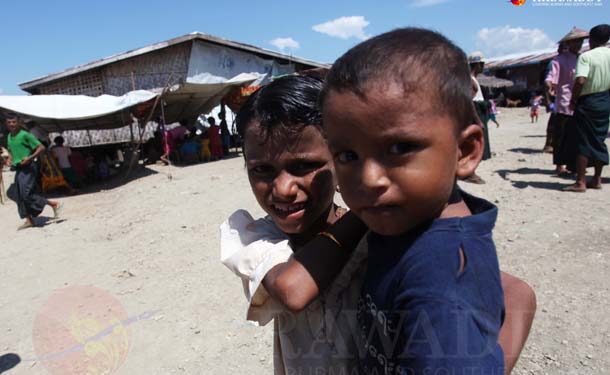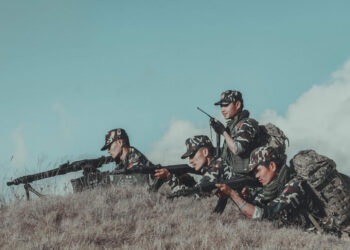The Arakan State government has said that it will begin counting the Muslim populations still residing in displaced persons’ camps in Kyaukphyu, Ponnagyun and Myebon townships—so as to facilitate planning and development, the state government claims.
Many of Arakan State’s Muslims were left out of Burma’s 2014 census because they refused to identify as “Bengalis,” the term used by members of the government and the general public to refer to the country’s stateless Rohingya minority concentrated in northern Arakan State. The term implies they are illegal migrants from neighboring Bangladesh.
Min Aung, a spokesperson for the Arakan State Government, told The Irrawaddy that the enumeration of Muslims in camps in the three townships would begin on June 7.
Besides the Rohingya, Muslims in the Kyaukphyu, Ponnagyun and Myebon camps also include those of the Kaman ethnicity—a community which, unlike the Rohingya, form an officially recognized group in Burma and are eligible, in theory, for automatic citizenship. However, many Kaman were victims of the 2012 and 2013 anti-Muslim riots in Arakan State; in the camps, they face the same restrictions on movement and on access to employment, education and healthcare as the Rohingya.
“We already have population numbers for the [Buddhist Arakanese] people in the three townships. We will now collect information from Muslim communities who disputed [their ethnic designation in the 2014 census],” said Min Aung, in reference to the insistence of the government that Rohingya could not self-identify as such in the census, but had to accept being enumerated as “Bengalis” as a condition of their inclusion, which many refused outright.
“We wanted the total population for the three townships. It would be hard to implement future development projects if we did not know exact population sizes,” he said.
Aung Lwin, an ethnic Kaman from a Myebon camp, appeared to consider the enumeration exercise as a precursor to the government granting opportunities to apply for citizenship. To this end, he said he would be prepared to identify as “Bengali”—an illustration of how this term can be arbitrarily applied to other Muslims in Arakan State besides the Rohingya. Aung Lwin said that officers from the Immigration Department would be coming to his camp on Tuesday.
However, the link between this enumeration exercise and the reported resumption last month of a previously stalled citizenship verification drive in Arakan State, which allows stateless Muslims the opportunity to apply for citizenship (with Rohingya having to identify as “Bengali”), is not currently clear. Arakan State government spokesperson Min Aung did not draw this connection in his statements to The Irrawaddy.
As part of the former government’s Rakhine State Action Plan unveiled in 2014, a pilot citizenship verification program was carried out in displaced persons’ camps in Myebon Township. Out of the 1,094 Muslims applicants, 209 were declared eligible for citizenship in September 2014—although most were reportedly Kaman, and a large majority, 169, qualified only for naturalized citizenship. After an outcry from Arakanese Buddhist residents in Myebon and the state capital Sittwe, the program was swiftly suspended.

















